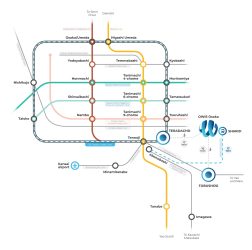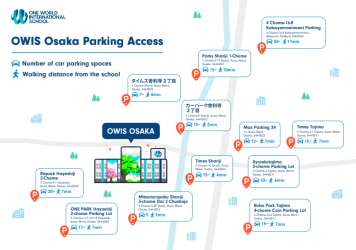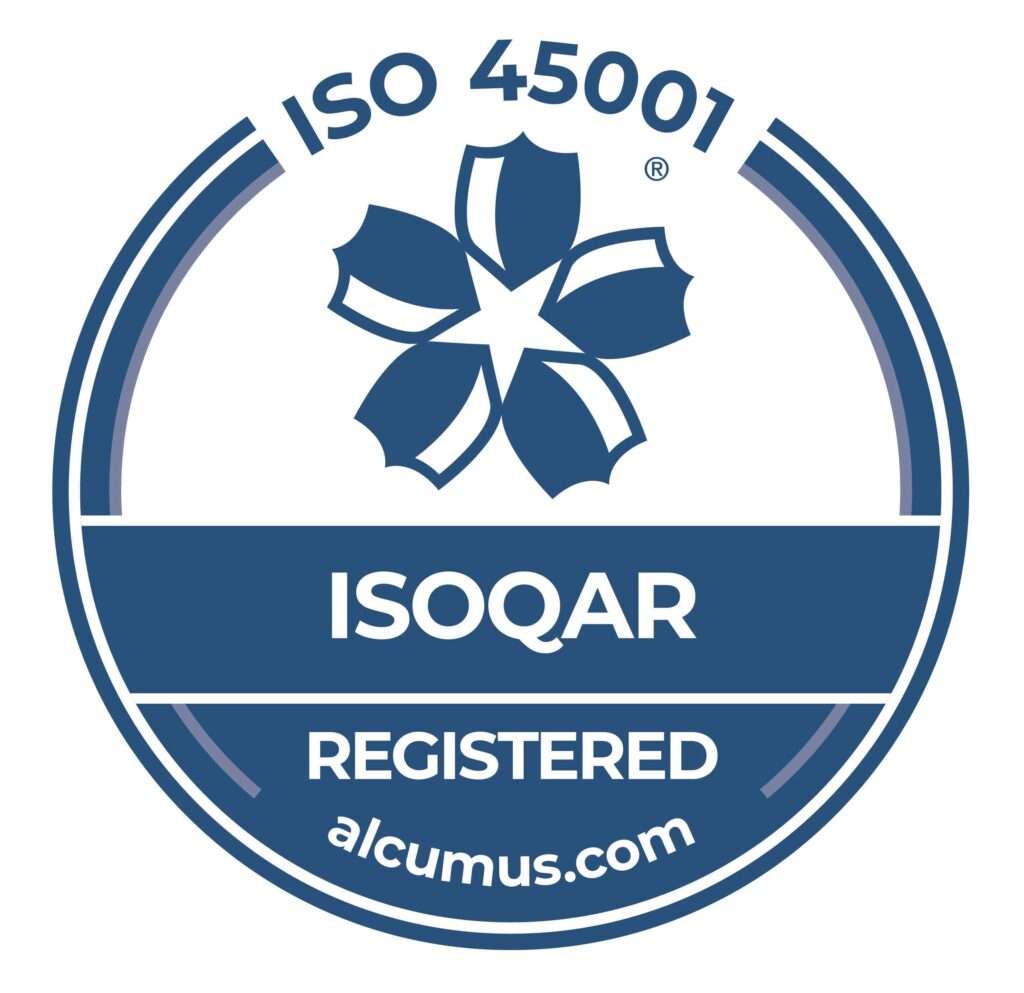No two schools are the same, and when selecting the right international school for your child, it is important to compare various curriculums to find the best fit. International schools offer diverse curriculums. Therefore it is important to choose one that offers a well-rounded education and prepares your child to thrive in a globalized world and make a positive impact. The International Baccalaureate (IB) is an excellent option for achieving these goals.
What is the International Baccalaureate (IB)?
The International Baccalaureate (IB) program is a globally recognized educational program that offers a challenging and comprehensive learning experience for students aged 3 to 19. This program uses a student-centered approach that focuses on developing research, critical thinking, and communication skills, providing a well-rounded education that equips students for continued academic and professional success. Its main aim is to cultivate compassionate individuals who not only thrive in this interconnected world but also leave a lasting impact.
Originating in Switzerland, the IB program has been adopted wide-world, spanning across 168 countries and implemented in more than 5,000 educational institutions referred to as “IB world schools.”
What Are IB Schools?
IB schools, shortened from IB World schools, are educational institutions authorized by the International Baccalaureate Organization (IBO). These schools undergo a rigorous authorization process, typically spanning 2-3 years, to ensure they adhere to the stringent IB standards set by the IBO.
How to choose an IB School
When evaluating an IB school, it’s important to focus on three key aspects:
- Accreditation: It is important to understand the specific IB programs offered by the school, as some institutions may only offer select IB programs but not the entire IB curriculum.
- Resources: Parents should assess whether the school has the necessary resources to cater to the diverse needs of its students. Adequate resources are important for a comprehensive IB education.
- Global Ranking: Research the school’s ranking or performance compared to other educational institutions. A higher ranking can indicate the school’s overall quality and the effectiveness of its IB programs.
What is the IB curriculum
The IB curriculum is established by the IBO, and is an academically challenging program of study that prepares students physically, mentally and emotionally for success in university and beyond.
To attain the prestigious IB Diploma, students must fulfill requirements across six subject groups, successfully pass IB examinations, and meet additional criteria.
The IB program is made up of three distinct, progressive stages. Let’s take a closer look at them in the next section.
What is IB Program
An IB Program, also known as a Programme, refers to one of the four stages within the comprehensive IB Curriculum. Each program is made up of a carefully designed curriculum framework that is both well-rounded and age-appropriate for every student, focusing on specific skills and the development stages for each age group.
Primary Years Programme (PYP): For students aged 3 to 12.
The PYP emphasizes inquiry-based learning, encouraging students to become critical thinkers, communicators, and global citizens. It nurtures a sense of curiosity and inquiry in young learners.
Middle Years Programme: For students aged 11 to 16.
The MYP places a strong emphasis on holistic development. It encourages students to explore a broad range of subjects while sharpening their critical thinking, research, and communication skills. It aims to create well-rounded, empathetic individuals.
Diploma Programme (DP): For students aged 16 to 19.
The DP is a rigorous and deep program that fosters critical thinking, research skills, and thorough subject knowledge. Students engage in thorough in-depth research, extended essays, and the Theory of Knowledge (TOK) course to prepare for university-level studies.
Career-related Programme (CP): For students aged 16 to 19. (Similar to the DP age group)
The CP is designed for those students that have a clear career path in mind. It combines academic courses study with practical experience, focusing on developing professional and technical skills related to their chosen field. Upon completion, students are prepared for both further education and immediate employment.
Notably, during the final stage of their educational journey, depending on their career goals, students have the flexibility to replace the Diploma Programme with the Career-related Programme if their career aspirations dictate. This flexibility allows students to customize their education to their individual goals and interests.
After successfully completing all four stages of the IB program, students receive a DP diploma. To graduate and receive their diploma, students must complete course work in six subject areas, and are evaluated through written assessments, an extended 4000-word essay, and 150 hours of community service and activity, and other mandatory classwork.
The International Baccalaureate (IB) program consists of six core subject groups:
Language and Literature, Language Acquisition, Individuals and Societies, Sciences, Mathematics and The Arts or Electives.
To create a well rounded and balanced curriculum, students typically select one subject from each group. Each program is based on the student’s age, stage of development and learning needs. Below is an in-depth look at each program.
Primary Years Programme (PYP)
The Primary Years Programme (PYP) is an inquiry-based program for children aged 3-12. It focuses on conceptual learning across different subjects, and is built on three pillars which emphasize: the learner, learning and teaching, and the learning community. These pillars encourage students to actively participate and take ownership in their learning journey, fostering caring and engaged young learners.
The PYP program is also structured around six transdisciplinary themes that revolve around students developing self-awareness within, and also of the world around them. Thus, the six themes are: understanding who individuals are, where they exist, how they express themselves, how the world operates, how societies are organized, and how they perceive the planet.
A unique aspect of PYP is its alignment with the IB Learner Profile, which recognizes the unique needs of early learners, and understanding how students learn. As a result, learning and teaching approaches are tailored to their developmental stage, using play, discovery, and exploration as essential learning tools.
Another feature of the PYP is the cultivation of learning communities made up of teachers, parents, and fellow students. Teachers collaborate with students, offer guidance, monitor, and provide feedback. Learning communities acknowledge children’s emerging personalities and skills, and create an environment where children are valued at all stages of their personal development, including who they aspire to become in the future.
Throughout this stage of learning, self-efficacy, the belief in oneself, is a crucial trait and allows students to actively engage in the learning process. In the final year, students have the opportunity to inquire about, research, document and share their understanding of an issue or area they are interested in. They can then share and celebrate the milestones and achievements earned so far during their PYP journey with the whole learning community.
Middle Years Programme (MYP)
The Middle Years Programme (MYP) is a five year program that prepares students aged 11-16 for the IB Diploma Programme. Building on the PYP, it encourages students to be active learners, intellectually minded, empathetic, and have the intellect and skills to evaluate potential and take risks.
The MYP consists of eight subject groups for the IB Diploma:
- Language and Literature: This section focuses on the student’s first language, with an emphasis on language and literature, both individually and as an interconnected whole.
- Language Acquisition: This section focuses on learning additional languages, both modern and classic.
- Individuals and Societies: These are courses based on humanities and the social sciences, and focus on human behavior, societies, and cultures.
- Sciences; In this section, students look at different branches of science, conduct experiments, and gain a deeper understanding of scientific principles.
- Mathematics ranging from basic to advanced, focuses on mathematical concepts and skills.
- The Arts or Electives allow students to choose from courses in the visual arts, music, theater and other areas that align with their interests.
- Physical and Health Education promotes physical fitness, health and well-being and developing healthy habits. It also includes sports, physical activity, nutrition and personal well-being.
- Design includes product design, digital design and engineering with an emphasis on using problem-solving and practical application of design principles.
To create a well rounded and balanced curriculum, students typically select one subject from each group. At the end of the program, students participate in a personal project that can either be self-driven research or a practical project based on their academic interest. The MYP encourages students to make a connection between their studies and the world.
Diploma Programme (DP)
The final program in the IB curriculum is the Diploma (DP) Programme. It is a two-year program for students aged 16 to 19. In the DP program, students reflect on what they have learned, complete independent research or a project that involves an aspect of community services.
The program is recognized internationally as a qualification for entry into higher education institutes.

Core Components of the DP
The DP program fosters research, communication, problem-solving and critical thinking skills. It also promotes self-awareness, responsible thinking, and collaboration.
These are valuable skills that serve as a critical and valuable foundation for the next phase in students’ academic and/or professional lives, making DP a transformative and valuable experience.
The DP program has three core components: Creativity, Activity, Service (CAS, Theory of Knowledge (TOK), and Extended Essay (EE).
Creativity, Activity, Service (CAS)
CAS is one of the three essential elements students must complete as part of the DP. It requires students to be involved in a range of extracurricular and community service activities alongside academic course work.
Students are required to demonstrate the three aspects of CAS in a project. The project has to demonstrate the concepts of:
- Creativity – expressed through the arts, and other experiences that involve creative thinking.
- Activity – some type of physical exertion that contributes to a healthy lifestyle, while complementing academic work elsewhere in the DP.
- Service – a voluntary and non-paid exchange that has a learning benefit for the student., and demonstrates respect for the rights, dignity and autonomy of all those involved.
A good CAS project is both challenging and rewarding, and also a transformative experience for students giving them the opportunity to use initiative, show perseverance and exercise skills such as problem-solving, collaboration and decision-making.
Theory of Knowledge (TOK)
TOK gives students the opportunity to reflect on the nature of knowledge and on how we know what we claim to know.
It consists of asking questions, the central one being “How do we know?”. Other questions can then be based on what counts as evidence, how we measure conclusions and what certain information means.
Through discussions of these questions, students summarize what they have learned and are assessed through an exhibit and a 1600 word essay.
TOK fosters self-awareness and critical thinking by getting students to look at knowledge critically, and consider the role it has not only in their culture but other cultures, and around the world.
Extended Essay
In this component, Students select a subject or topic of personal interest, formulate a research question, conduct comprehensive research, explore the subject matter, communicate their concepts effectively, and build a well-founded argument, which all culminates in a 4,000-word essay.
The extended essay fosters self-awareness and critical thinking by getting students to look at knowledge critically, and consider the role it has not only in their culture but other cultures, and around the world.
In the research process, develop skills in formulating an appropriate research question, gathering information, communicating their ideas and developing an argument, all of which are valuable skills they can use in their post-secondary education and careers.
Advantages of the IB System
1. Holistic Education
A well-rounded education allows students to not only grow academically but also develop emotionally and socially.
A key aspect of the IB program is that it goes beyond academics and teaching core subjects. Students also gain soft skills like teamwork, critical thinking, problem-solving, empathy, and a global mindset.
IB programs also aim to create a more peaceful world and develop students who will develop into caring and empathetic adults. This is also demonstrated through the community engagement aspect of the program where students have a sense of responsibility and citizenship.
This develops students who can grow into well-rounded, talented, highly-skilled adults who are empathetic and caring, not only creating a positive impact in their lives but also the world around them.
2. Practical and focuses on real-world situations
The IB curriculum encourages students to develop critical thinking, creativity, and innovative, analytical, and research skills. While the IB program gives the educational framework, this is balanced by allowing students to connect the concepts in real-world situations.
Students are also able to put everything together, look at the bigger picture, and understand the importance of what they are looking at. This makes it easier to apply their knowledge in multiple situations.
3. A Global Mindset
The IB program emphasizes students to have a broad understanding of the world, other cultures, and global issues. Through this students are aware of what is going on in the world, develop empathy, and understand how the world interconnects. As a result, students can develop empathy and a sense of how the world is interconnected.
The IB program also aims to develop global citizens, and another way this is done is by allowing students to study and acquire multiple languages. This helps with intercultural understanding, respect, and a sense that the world is interconnected.
How International Schools Enhance the IB Experience
The synergy between the IB’s global approach and the ethos of international schools is readily apparent. Parents often seek international schools to provide their children with a unique multicultural experience that is not typically found in national schools.
The inherent flexibility of international schools allows them to seamlessly integrate language programs, foster networking opportunities, and offer a comprehensive education that goes beyond the confines of national curriculum requirements. By their nature, international schools facilitate adaptable and diverse learning experiences.
This provides students with the well-rounded global perspective that parents want them to have, and also gives them access to international opportunities.

Accreditations
An IB School accreditation gives the school credibility and proves that the school has achieved the IBO standard in education. When looking at schools, it is important for parents to first check the school’s accreditation.
While some schools offer IB programs, they may not be properly accredited. It is important to make sure that a school is authorized for each IB program it offers, and also that the school offers all programs for students who need to get the IB diploma.
Cost Implications
The IB Program can be costly, with program participation costs, IB exam costs, and tuition costs adding up to hundreds or even thousands of dollars. Parents can plan ahead by contacting the specific IB school they are interested in to get exact costs. This can help them plan ahead, and research financial aid and scholarship options.
Other ways of saving money costs include looking for free or low-cost learning resources online, sharing resources with other students, and getting used materials. You can also prioritize certain subjects over others, as opposed to the entire program (i.e., the ones that you are interested in or that will help with university admissions).
Intensity
The IB curriculum is demanding and challenging and has a heavy course load. Students sometimes complain that it leaves little time for extracurricular activities.
The challenges of the intensity are not a reflection of your child’s abilities, but the nature of the course. The benefit is that over time it is manageable with the right resources, and it teaches your child to be diligent, organized, and manage their time well.
There are online resources to help with the course such as online resources and tutoring. Students can also collaborate with their classmates to maximize their learning by creating study groups. Teachers are also available to provide help and study guidelines.
While the program is challenging, it is also an opportunity for personal growth and development, allowing your child to be diligent, and organized and develop time management skills.
Conclusion
In conclusion, the International Baccalaureate (IB) program, available in 5,000 schools across 68 countries, fosters critical thinking, global awareness, and holistic development. It equips students with practical skills, empathy, and a sense of global responsibility. For parents considering the IB program, it offers not just academic excellence but also essential life skills and a deep understanding of global dynamics, preparing students to excel in our interconnected world.











